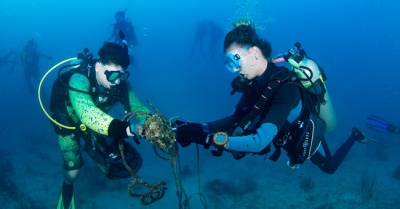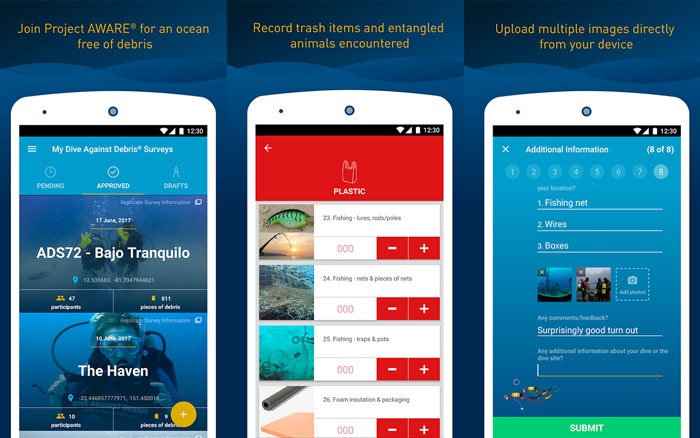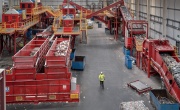New app enables divers to chart marine litter levels
A new smartphone app is enabling scuba divers across the world to easily record information on the marine litter they encounter under the sea.

Marine debris includes materials discarded or washed into the sea, and causes problems for wildlife and ocean habitats. A study published last year by environmental organisation Ocean Conservancy and the Commonwealth Scientific and Industrial Research Organisation (CSIRO) found that entanglement is the greatest risk for marine life created by plastic pollution, but ingestion and contamination are also major risks.
In 2016 alone, divers reported 1,624 entangled marine animals during surveys for Project AWARE.
Awareness of the problem has spiked in recent years, with microplastics, soon to be banned in cosmetic products in the UK, now being traced in the remotest areas including the waters of the Arctic. As well as the increasing amount of land-derived litter making its way into the sea, most items that reach marine environments degrade very slowly, leading to an accumulation of polluting material.
Although its Dive Against Debris survey has been running since 2011, Project AWARE hopes that the launch of the app will make it even easier for divers to report their findings. For ease, the app includes a list of common debris items and uses geo-location to track the latitude and longitude of the dive.
After completing a dive, all the scuba diver has to do is report the debris removed, dive conditions and upload any photos. The app stores divers’ data regardless of data connection through a draft feature.

Divers are invaluable in the research process, working alongside academic bodies to map the scale and extent of marine litter, helping governments meet the objectives of the Global Partnership on Marine Litter, which builds on the Honolulu Strategy.
The strategy, released in 2011, is a framework for a comprehensive, global effort to reduce the impact of marine debris and protect human health and ecology globally.
Danna Moore, Project AWARE’s Director of Global Operations said: “For many people, marine debris is a problem that’s out-of-sight, out-of-mind once it enters the marine environment. This is mainly because 70 per cent of marine debris that enters the ocean sinks to the sea floor. That’s why scuba divers are so critical to this movement – they have the unique ability to bring to the surface what’s going on beneath the waves.
“This app is going to make a huge difference in gathering critically needed data to reveal the extent of the global marine debris crisis for scientists an help conservationists to advocate for change. There is a tide of debris suffocating the ocean. We have to reverse it.”
Smart technology turning the tide on litter and waste
Increases in smart technological developments have meant great things for waste reduction, with organisations utilising smart technology and producing apps to revolutionise the waste tracking process.
In a generation where most people are either on their phone, or have their phone on them organisations, such as Project AWARE, can exploit this, making their initiatives more accessible and convenient for people to get involved with.
As well as helping track waste, apps exist to help minimise consumer’s food waste, such as Too Good To Go which allows you to order surplus meals from restaurants at a discounted price, amongst a myriad of others that often incorporate innovative ideas to alter preconceptions of recycling and food waste minimisation. 








